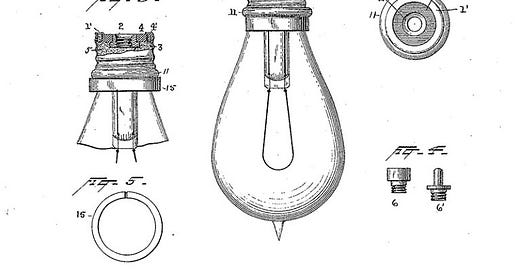Axial: https://linktr.ee/axialxyz
Axial partners with great founders and inventors. We invest in early-stage life sciences companies such as Appia Bio, Seranova Bio, Delix Therapeutics, Simcha Therapeutics, among others often when they are no more than an idea. We are fanatical about helping the rare inventor who is compelled to build their own enduring business. If you or someone you know has a great idea or company in life sciences, Axial would be excited to get to know you and possibly invest in your vision and company. We are excited to be in business with you — email us at info@axialvc.com
The advent of large language models (LLMs) like GPT-3 and ChatGPT has the potential to transform the legal industry. While AI and automation have been making inroads in legal tech for years, LLMs represent a quantum leap in capabilities that could overhaul legal workflows. However, the path to widespread adoption faces obstacles, especially the entrenched billable hour model that disincentivizes efficiency.
For routine legal work, LLM-powered software promises huge time savings by automating drafting and review for contracts, briefs, memos, and more. This could allow attorneys to focus on higher-value complex work. However, law firms bill by time spent, so they may hesitate to adopt tools that reduce billable hours.AI also enables new data analysis capabilities for litigation and due diligence. By quickly surfacing key facts and documents from massive datasets, LLM software can boost speed and lower costs for discovery and research. This aligns with incentives, as higher profit margins incentivize using technology to gain an edge.
Areas like patent law seem especially poised for disruption by AI. The USPTO already uses AI for prior art searching to assess patent applications. Now legaltech startups are emerging to streamline patentability searches, drafting, filings, and more leveraging LLMs. Since patents follow prescribed formats and involve vast databases of prior art, automating patent analysis and drafting with AI is proving highly effective. This could lower costs and delays for securing patent protection.
However, IP attorneys have voiced concerns about reliance on AI tools for invalidity searches or to determine if a patent application covers eligible subject matter. Unlike humans, LLMs may miss nuanced connections or lack contextual understanding of inventions and claims required for patent prosecution and litigation. Potential biases in training data also raise questions about AI reliability for high-stakes patent opinions.
So while AI Patent analysis seems primed for augmentation by LLM software, areas like validity and patentability opinions still require human legal judgment. Hybrid human-AI approaches may emerge as best practices. The key for AI adoption is determining which tasks truly require attorney oversight versus those where automated LLM outputs are sufficient.
For law firms, integration challenges loom large. Adopting LLM software requires changes to internal processes and workflows. Firms must train attorneys on appropriate AI tool usage and collaboration. Malpractice and liability risks around relying on algorithmic outputs also need addressing. And firms will face pricing pressure as AI boosts productivity, necessitating changes to the predominant billable hour model.
Pressures are mounting on law firms as clients increasingly demand efficiency and alternative fee arrangements. COVID-19 budget cuts have intensified these demands. LLM-based software could enable law firms to modernize services, but unwillingness to move beyond the billable hour and undertake practice transformations may cause clients to take their business elsewhere. Law firms that proactively integrate AI tools and new service models will gain a competitive edge:
Overall LLMs seem poised to disrupt legal services, but barriers around risk aversion, lack of technical expertise, and the billable hour model may slow adoption absent external pressures. Patent law looks ripe for AI automation, but validity opinions require human judgment. Client demands for efficiency and fixed fees will likely accelerate AI adoption. Law firms that transform workflows and business models will be best positioned to leverage AI for competitive advantage. But the technology alone will not transform legal practice without attendant changes in service delivery designed around efficiency and value.




